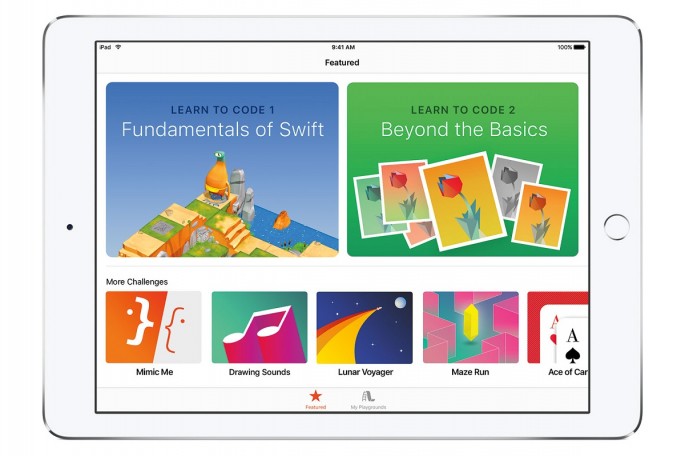Apple ended the keynote event of its Worldwide Developers Conference (WWDC) with announcements that included a new iPad app named Swift Playgrounds. The goal of the tablet software is to teach Apple's Swift programming language to children and adults. Developers use Swift to code the majority of iOS apps available today.
Swift Playgrounds includes different programs that teach people how to code. "Fundamentals of Swift" is a 3D puzzle game that requires users to control a character named Byte to find gems, according to Fast Company.
The first lesson uses a special coding keyboard so users can quickly learn how to write code and move Byte forward on his trip. Users type in code on the right side of the screen, and can see the result in 3D graphics on the left side.
After app users complete "Fundaments of Swift" they can start more complex lessons. Within time the lessons include all the basics of Swift coding including commands, functions, and variables.
The new app also includes templates to make it easier for users to boost their coding. The maker of iPhones, iPads, and Macs has plans to release more lessons for Swift Playgrounds.
Apple CEO Tim Cook shared that the company believes all schools should require coding as a subject. Swift Playgrounds takes the first step instead of waiting for public school districts to launch such programs.
A beta version of Swift Playgrounds was made available to developers on June 13, Monday. The app will be launched as a free download on the App Store this fall.
Swift Playgrounds astonishingly got more responses on social media than new features for iOS and OS X announced at WWDC. Many people took to Twitter to comment on the new app.
In related news, last month Osmo Coding was introduced as a tool that teaches kids the basics of computer programming using real building blocks. The goal is to train children as young as 5 years old how to code.
Osmo users snap together numbered blocks by using commands such as Run and Jump. This guides a small monster named Awbie as he tries to collect more strawberries.
One block that looks like a music player's repeat button allows kids to loop lines of code, according to Wired. Meanwhile, twisting parts of the building blocks sends the monster in a new direction.



























